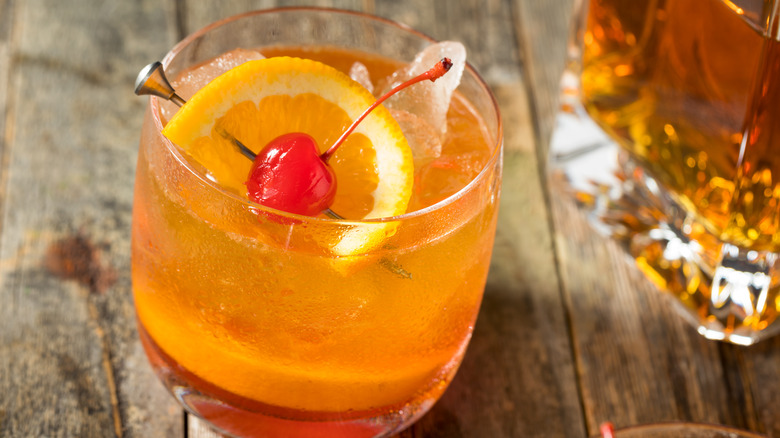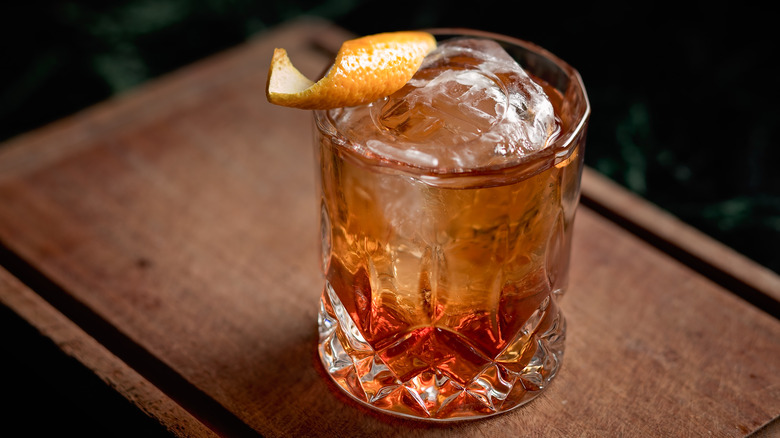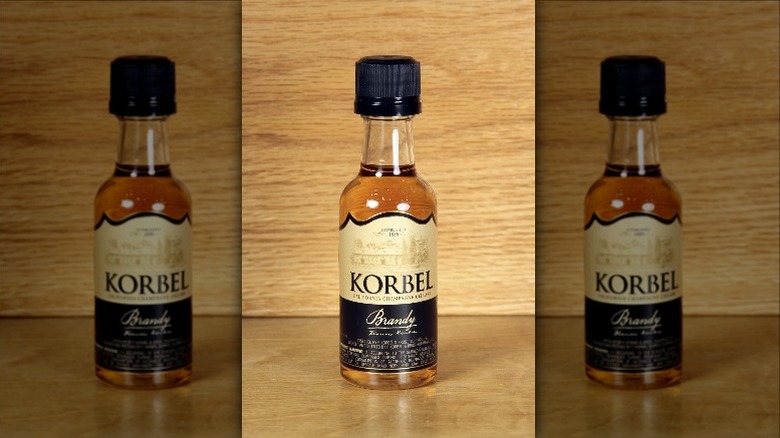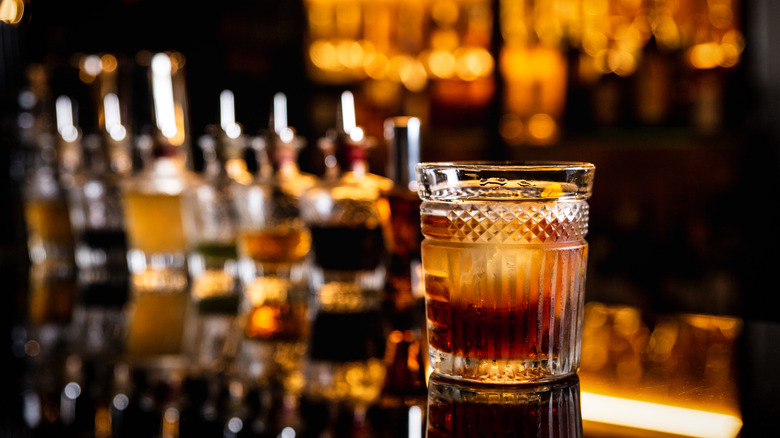What Makes A Wisconsin Old Fashioned Unique?
If you're in Wisconsin and looking for an adult beverage, there's no shortage to be had. The Badger State is home to a number of world-class breweries, such as Milwaukee's Lakefront Brewing, Madison's Ale Asylum, and New Glarus Brewing of New Glarus, notes The Culture Trip. There are also more than a few wineries of note, says Travel Wisconsin, such as Stone's Throw, Door Peninsula, and Red Oak.
And of course, the state boasts its share of cocktail bars where one can get any number of faithfully-executed classics or inventive, novel alcoholic concoctions, reports Best Things Wisconsin. But if you're looking for a true sip of Wisconsin, one that can be found from haute dens of mixology to corner bars alike, then look no further than the old-fashioned cocktail.
But why is the old-fashioned so synonymous with Wisconsin, and is it really even a true old-fashioned that Wisconsinites enjoy? We're diving into this classic cocktail and its connection to Wisconsin to find out why this old-fashioned is second to none.
What is an old-fashioned?
Traditionally, an old-fashioned is a rather austere beverage combining rye or bourbon whiskey with bitters, sugar, and water and a simple garnish of twisted citrus peel says Wine Enthusiast. For Wisconsinites, though, brandy reigns supreme in an old-fashioned, which is generally filled with soda water, sprite, or both. As the story goes and the name implies, the old-fashioned harkens back to the original cocktails, likely invented in the 1800s, says the National Post.
Back then cocktails were all quite similar — spirit, water, bitters, and sugar. But sometime after the Civil War, bartenders started to flex their prowess and drinks became a bit more fanciful. Though no one can say for sure, the old-fashioned was born of a desire for drinks in that original style with the quartet of classic ingredients. The International Bartenders Association still lists the old-fashioned as it was originally crafted in its list of "unforgettable" cocktails, alongside heavy hitters like the Manhattan, aviation, daiquiri, and gin fizz.
Heart of the brandy belt
As we've previously noted, in Wisconsin, an old-fashioned is made with brandy by default. No one knows for sure why, but many point to the state's long-time large German population. Atlas Obscura in studying Wisconsin's centrality to the Midwestern "brandy belt" notes that Germans have long prized brandy as a digestif. It would then be unsurprising that brandy would make its way into cocktails as bars across the state were already well-stocked in the spirit.
Brandy is a spirit broadly defined as the distillation of fermented fruit juice, says The Spruce Eats. It can be made from wine, such as Cognac and Armagnac, apple cider, as in Calvados, and plum wine, such as Slivovitz, to name just a few varieties of brandy. As fruit is easily fermentable due to its high natural sugar content and is ubiquitous across the globe, brandy of some kind is native to and enjoyed nearly around the world, from Brazil to Russia.
Getting personal
To get more specific about the Wisconsin brandy old-fashioned, it can be made in numerous ways, but there are three main preparations, says The Takeout. They all start out the same, with sugar or a sugar cube dropped into a rocks glass, moistened with a few dashes of Angostura bitters and a splash of water, and muddled until the sugar is dissolved. To this is added the brandy, which can vary in volume according to the bartender behind the stick, and ice before stirring to chill and dilute. From there, the old-fashioned can be customized as "sweet" with a spritz of Sprite or other lemon-lime soda, "press" with half lemon-lime soda and half seltzer, or "sour" with a glug of bar sour mix.
And speaking of customization, it doesn't end with that final addition of soda, sour, or seltzer to your old-fashioned. Wisconsinites also like to play around with garnishes. While some consider orange zest or a slice of orange along with a bright, red maraschino cherry the quintessential old-fashioned garnishes, notes Imbibe, there are others who like to play around with savory notes. It is not unheard of to see an old-fashioned dressed up with olives, pickled mushrooms, or even pickled Brussels sprouts, the latter two likely owing again to the state's German heritage and the Teutonic love of all things pickled.



